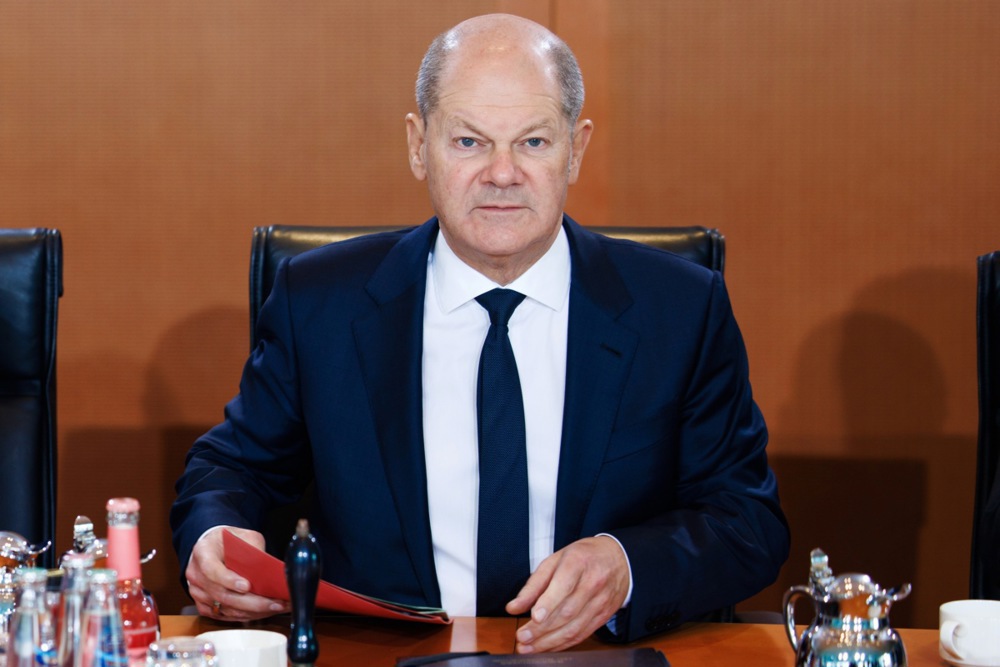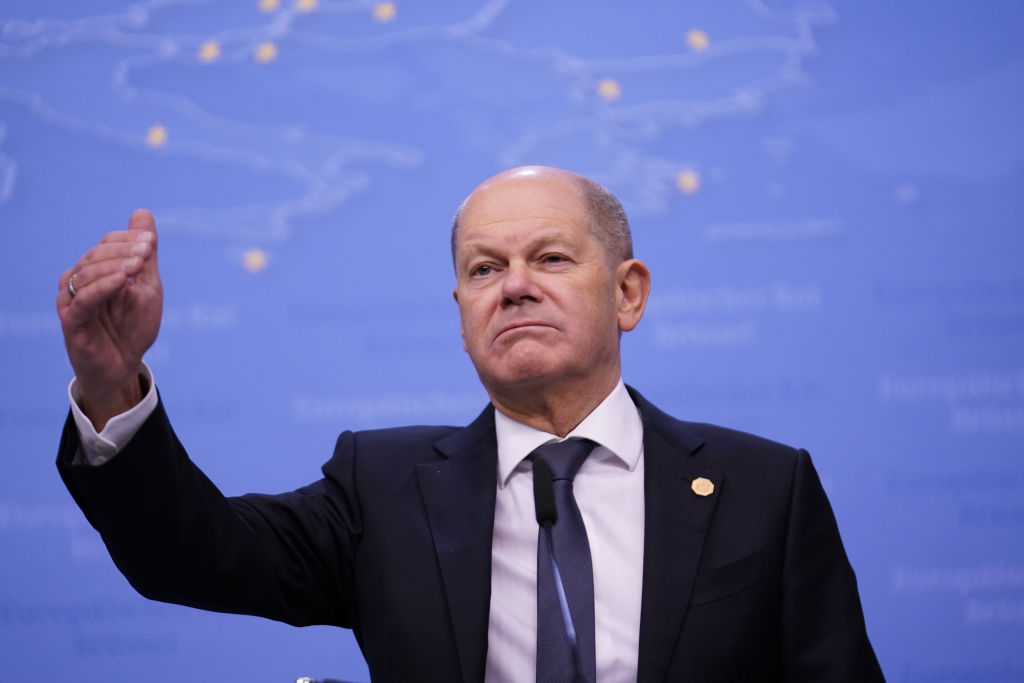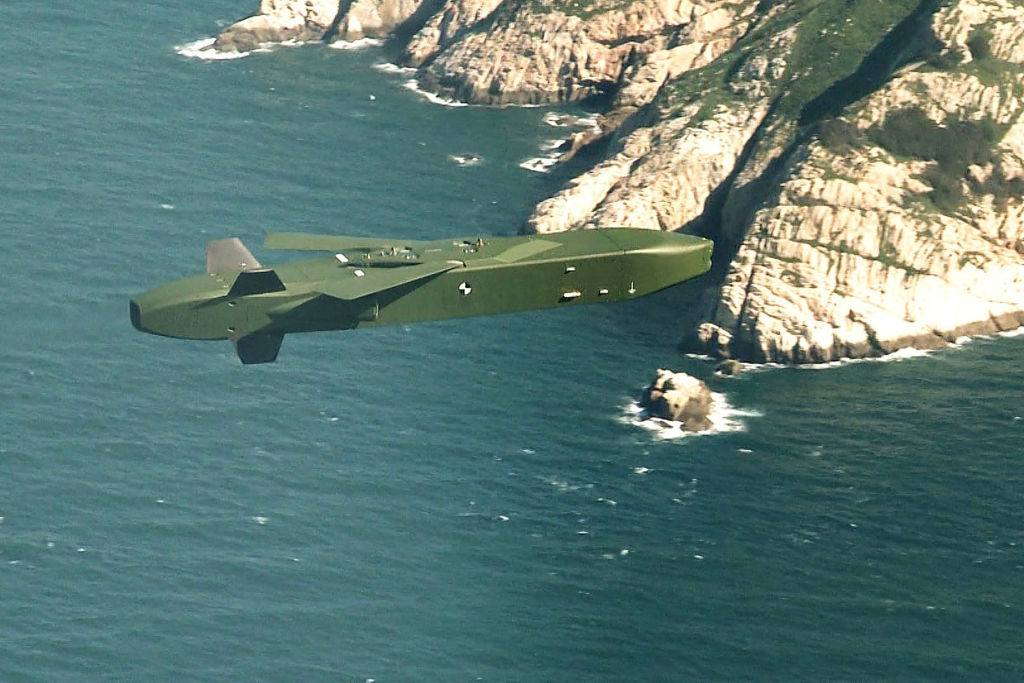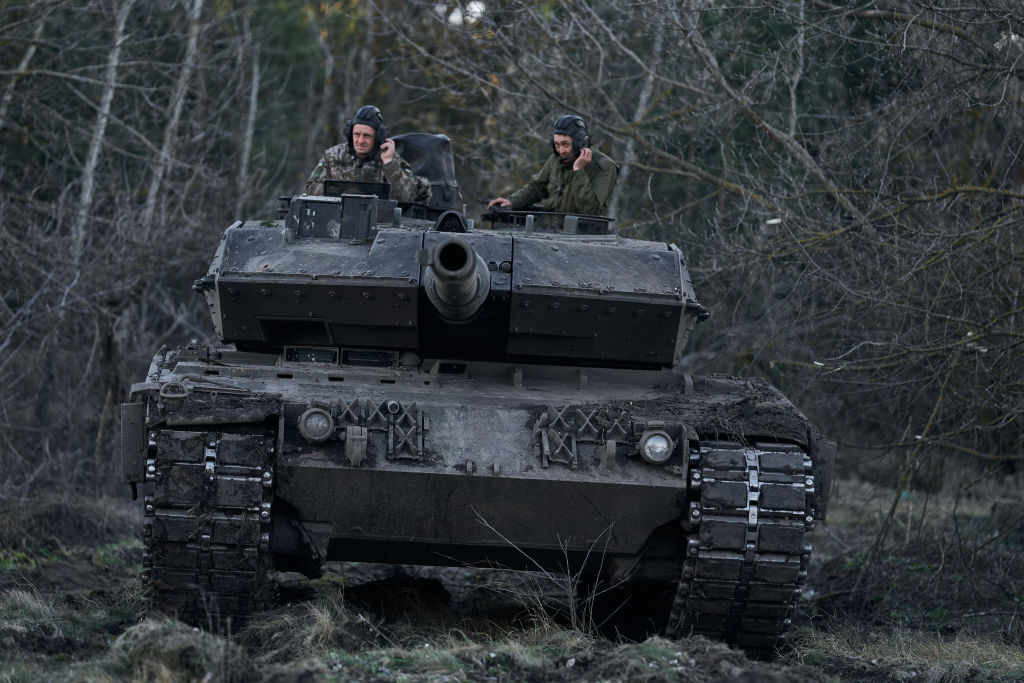A majority of Germans are against Ukraine joining the European Union, a new survey has found.
According to polling on February 14, conducted by the Bertelsmann Foundation, 52 per cent of Germans are not in favour of Ukraine becoming a fully-fledged member of the bloc, compared to an EU-wide average of 60 per cent against.
The German public appears more enthusiastic about sending weapons to Ukraine, with 53 per cent of the country in favour of such deliveries. That figure is higher among supporters of Germany’s ruling traffic-light Government.
Far fewer Germans who described themselves as not being politically aligned or as supporting one of the country’s major populist parties back weapons deliveries. Just 18 per cent of those aligning with the Alternative für Deutschland (AfD) party said they were in favour of the policy.
Germans seem far more enthusiastic about the prospect of a common EU defence policy, with 86 per cent of voters saying they were in favour of such an option.
That also seemed to chime among populist-voting citizens in the country, with 70 per cent of AfD voters saying they supported a common defence framework. Some 81 per cent of those supporting its left-wing competitor, Bündnis Sahra Wagenknecht, also said they were in favour.
Overall German support for the policy remains slightly behind the EU average of 87 per cent.
It is lower than in Italy and Spain, where it stands at 90 per cent and 94 per cent in favour, respectively.
The Netherlands is joining a military coalition with allies including Britain that will supply Ukraine with advanced drone technology and bolster its offensive capabilities in the war against Russia. https://t.co/lXR5C2bnE1
— Brussels Signal (@brusselssignal) February 14, 2024
The poll results emerged shortly before the announcement that Ukraine’s President, Volodymyr Zelenskyy, would visit both France and Germany from February 16.
Zelenskyy will reportedly begin his trip in France, where he is reportedly set to sign a new security agreement with French President Emmanuel Macron in Paris.
Much of the deal will apparently centre around the additional provision of advanced military equipment for Ukraine by France. The Macron administration is also set to agree to train more Ukrainian troops.
The Ukrainian leader will move on to Germany later that day for a meeting with Chancellor Olaf Scholz, before attending the Munich Security Conference the following day.
He is reportedly due to deliver an address at the event and hold bilateral meetings with other world leaders, including US Vice-President Kamala Harris, Czech President Petr Pavel, Danish Prime Minister Mette Frederiksen and Dutch Prime Minister Mark Rutte.
Hungarian Prime Minister Viktor Orbán has claimed he pushed for Ukraine to join NATO in 2008. https://t.co/TfVWQthzzV
— Brussels Signal (@brusselssignal) February 12, 2024





